Seoul blanketed by heaviest November snowfall in more than a century
16.5cm (6.5 inches) of snow fell by 7am on Wednesday
Your support helps us to tell the story
From reproductive rights to climate change to Big Tech, The Independent is on the ground when the story is developing. Whether it's investigating the financials of Elon Musk's pro-Trump PAC or producing our latest documentary, 'The A Word', which shines a light on the American women fighting for reproductive rights, we know how important it is to parse out the facts from the messaging.
At such a critical moment in US history, we need reporters on the ground. Your donation allows us to keep sending journalists to speak to both sides of the story.
The Independent is trusted by Americans across the entire political spectrum. And unlike many other quality news outlets, we choose not to lock Americans out of our reporting and analysis with paywalls. We believe quality journalism should be available to everyone, paid for by those who can afford it.
Your support makes all the difference.South Korea’s capital, Seoul, has faced its heaviest November snowfall on record, bringing power cuts and flight disruption.
The densely populated city was blanketed in the first snowfall of this year’s winter, with 16.5cm (6.5 inches) dumped by 7am on Wednesday, the Korea Meteorological Administration (KMA) said.
It was four centimetres more than the previous record-setting snowfall on 28 November 1972, when residents witnessed 12.4cm of snow.
The KMA said it was the heaviest of the November month since the records began more than a century ago in 1907.
The weather has led to dangerous conditions, with at least two people killed and four others injured in a five-vehicle accident in the eastern town of Hongcheon following traffic accidents on highways in the east of the capital.
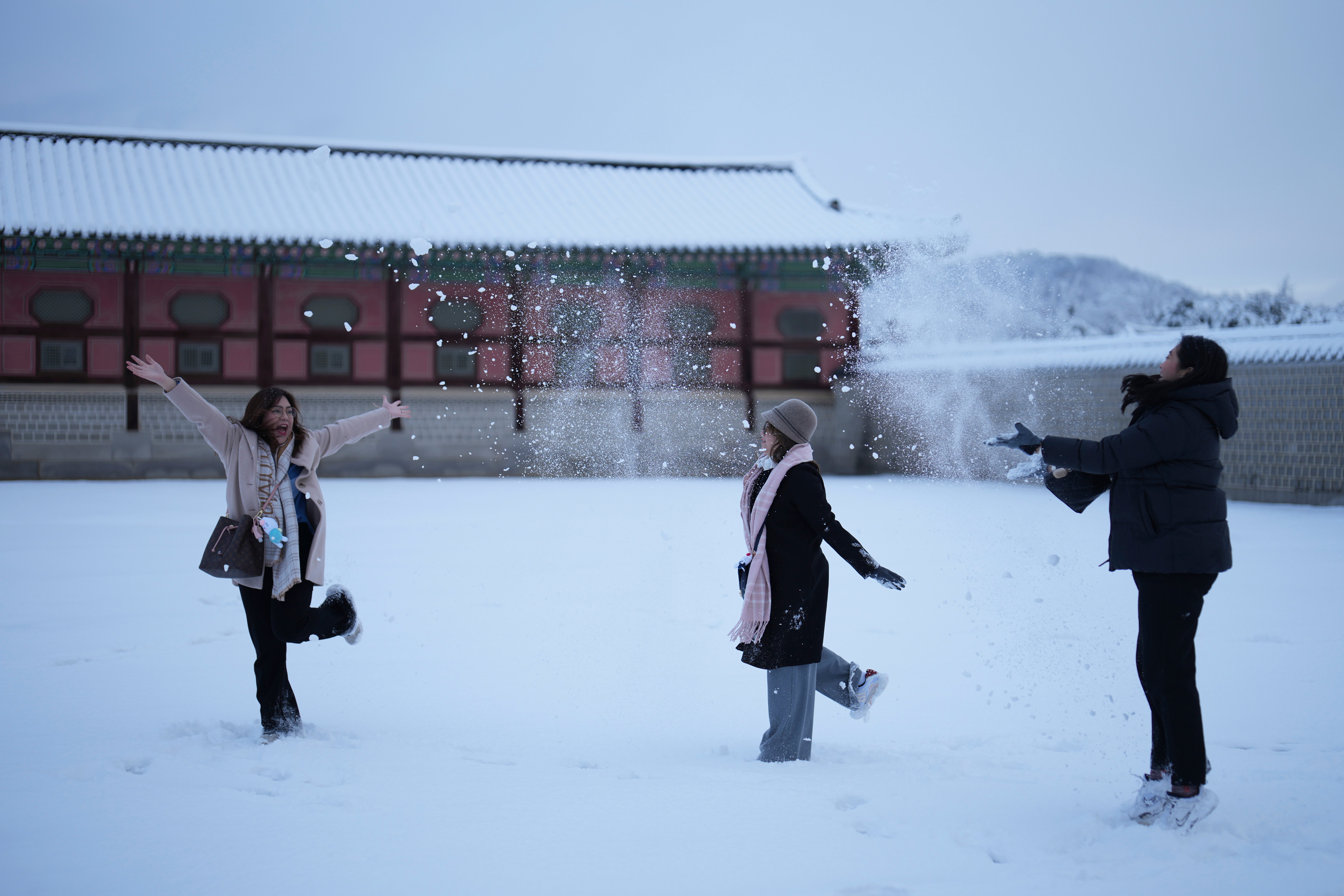
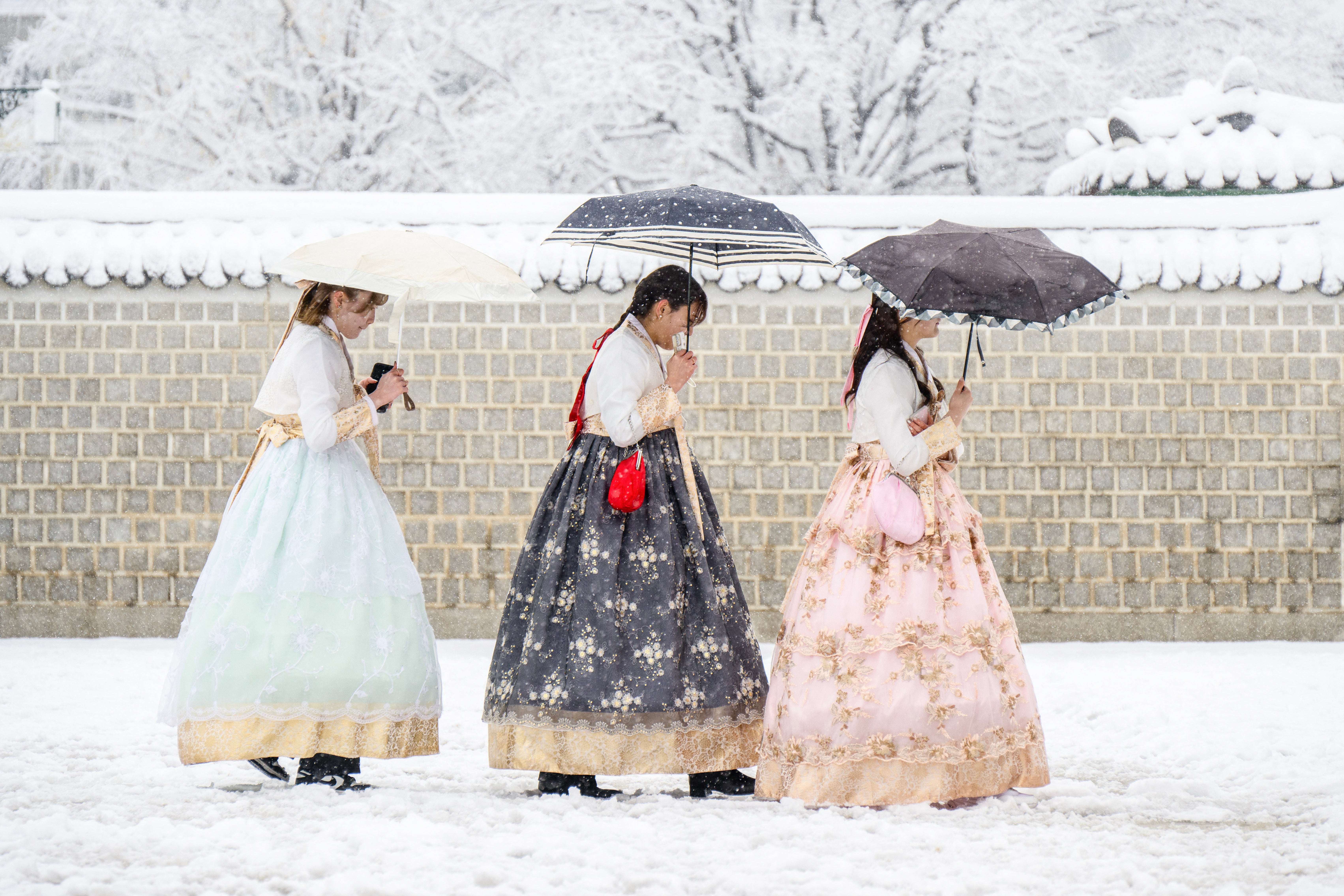
Some pedestrians were injured after debris and construction materials fell from buildings and construction sites due to strong winds.
The rare heavy November snow blizzard caught many in the country by surprise, as authorities grappled to restore power, clear roads and pavements and issue warnings.
More than 220 flights stood cancelled or delayed as the severe weather conditions impacted the airports across the country, leaving hundreds of passengers delayed.
At least 70 ferries were suspended as strong winds hit the coastal regions.
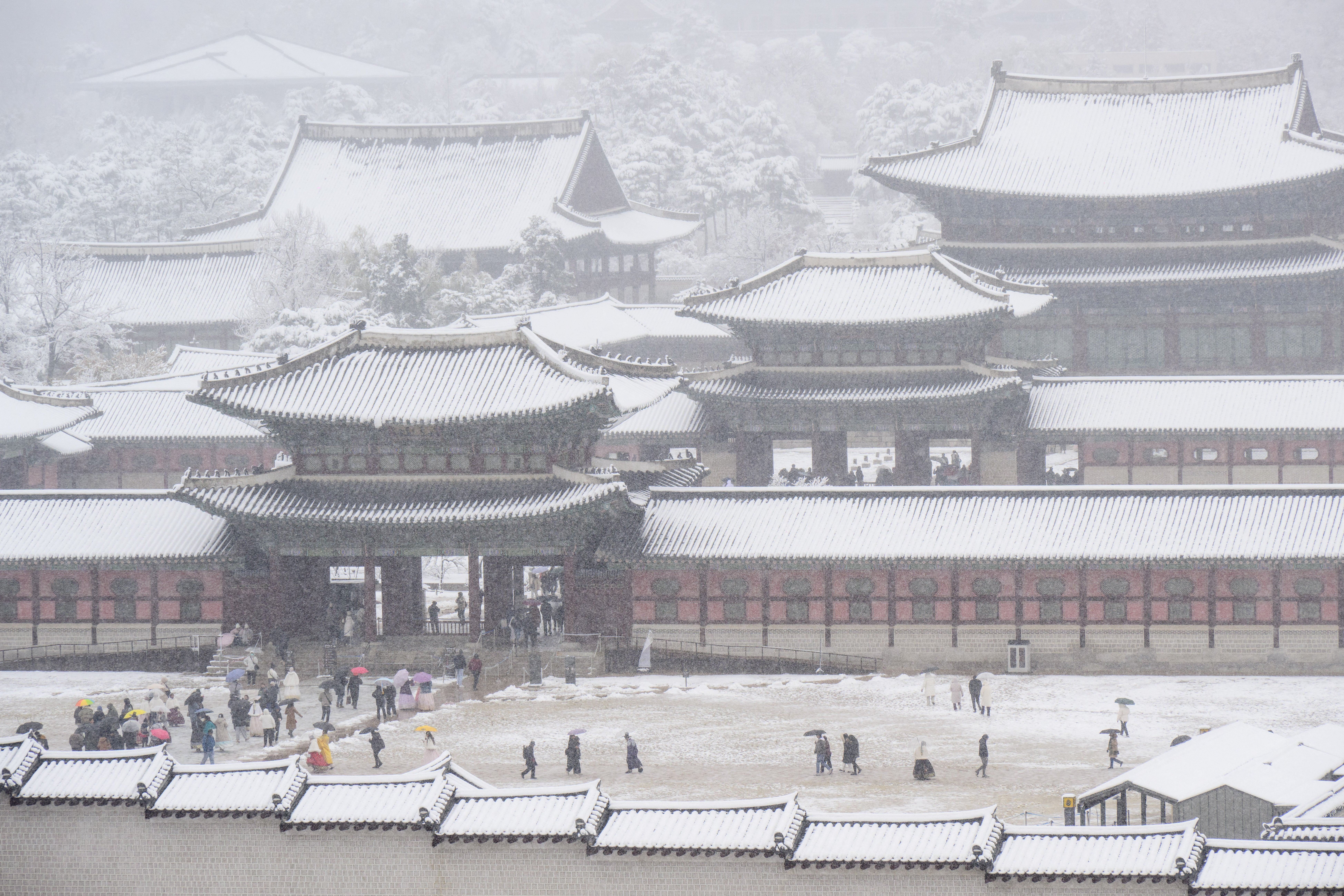
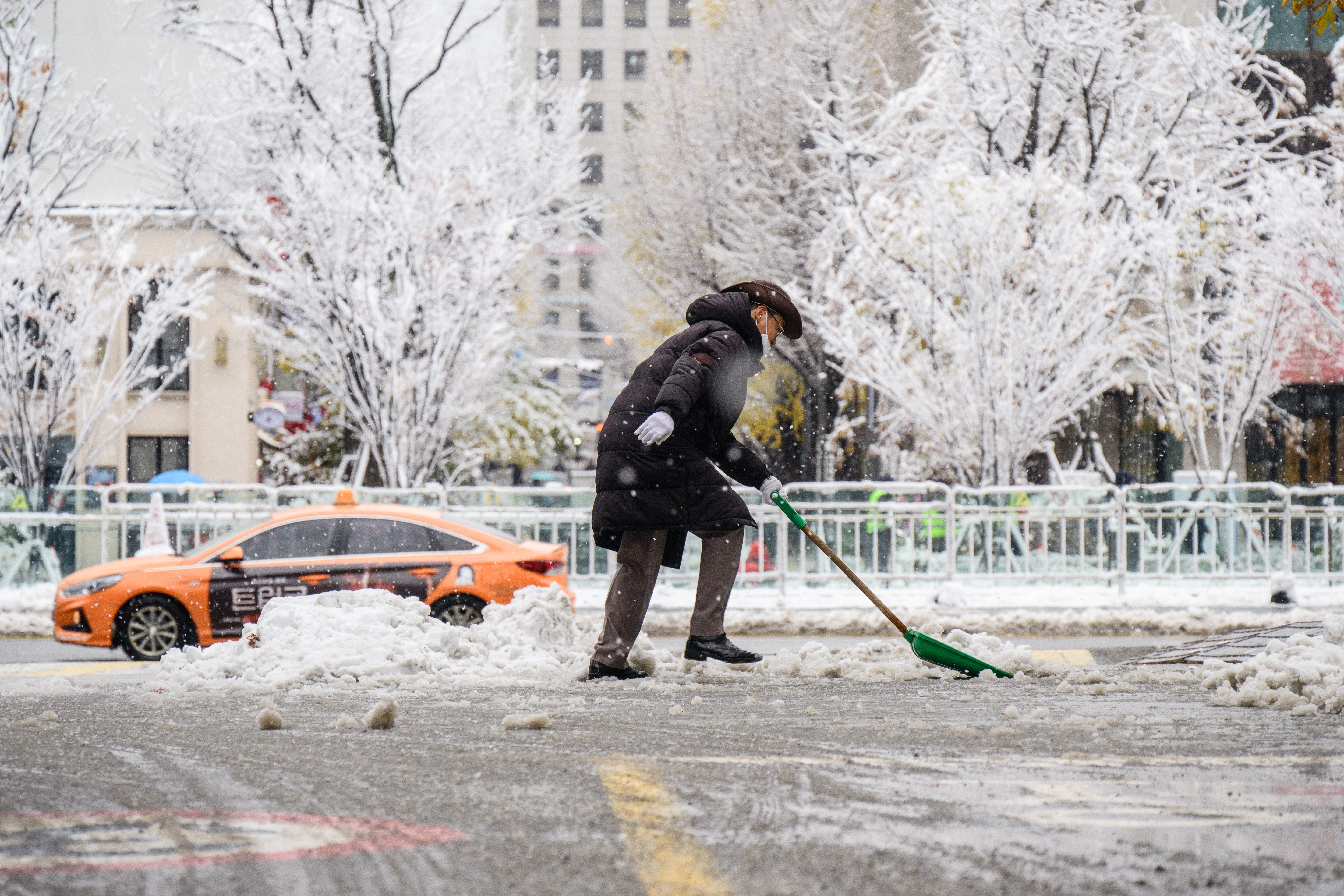
Treacherous icy roads disrupted the morning commute in Seoul, as emergency crews nationwide tackled safety hazards, including fallen trees.
Hundreds of households suffered blackouts in the early morning hours in Seoul and the central region as falling trees and snow damaged electricity lines.
Weather agencies in the country have warned of more snow and severe weather in the coming days for Seoul residents.
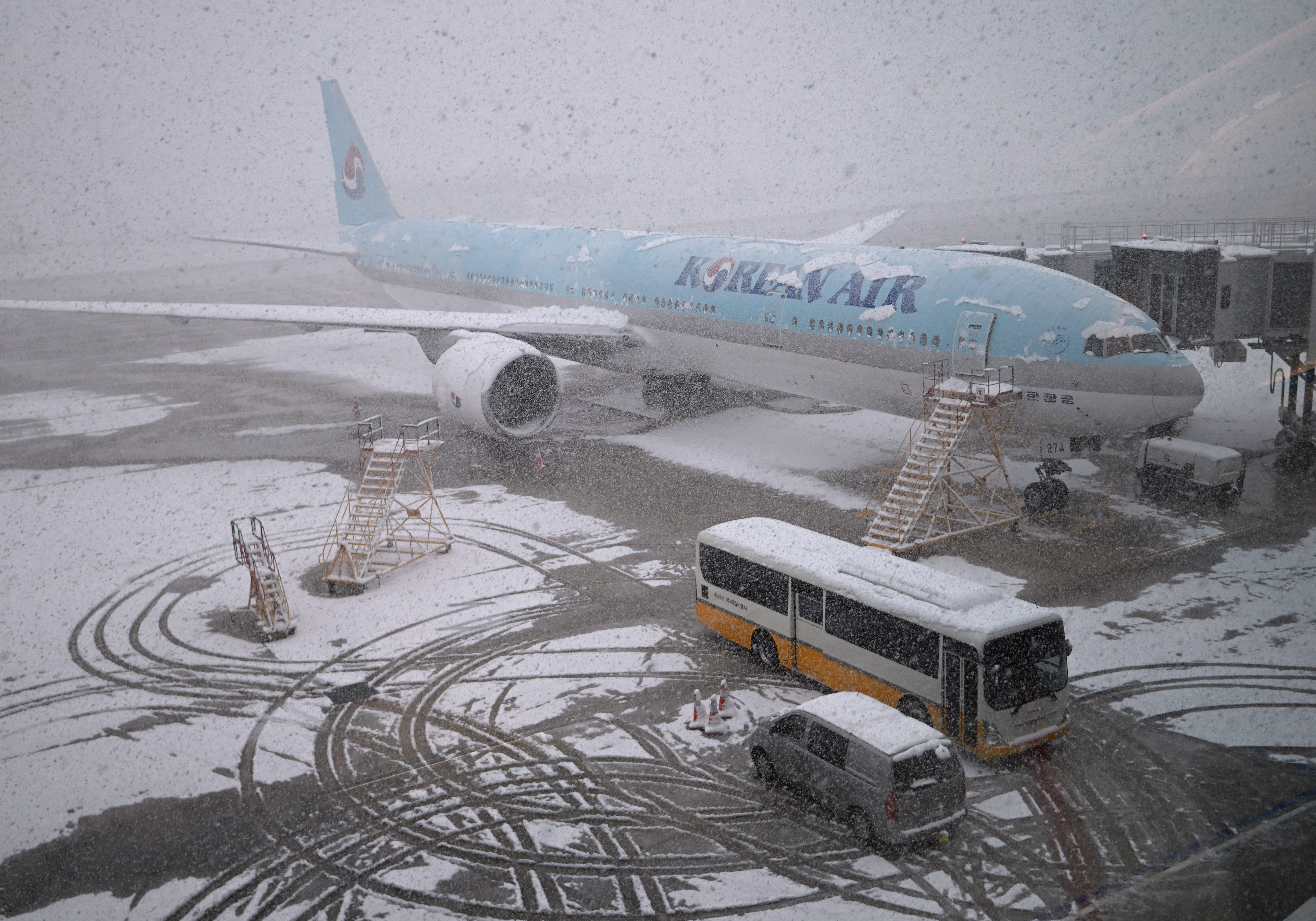
The Interior Ministry upgraded its disaster response saying up to 5cm an hour of snow was forecast through Thursday morning.
It warned of a risk of damage to facilities and property as the wet snow had a high concentration of moisture.
Meteorological officials have said a slow-moving low-pressure system north of the Korean Peninsula is pulling cold air from Russia’s far east toward the Yellow Sea, leading to snowfall. They said the snow blast was intensified by the warming up of the Yellow Sea, a result of climate change.

Join our commenting forum
Join thought-provoking conversations, follow other Independent readers and see their replies
Comments